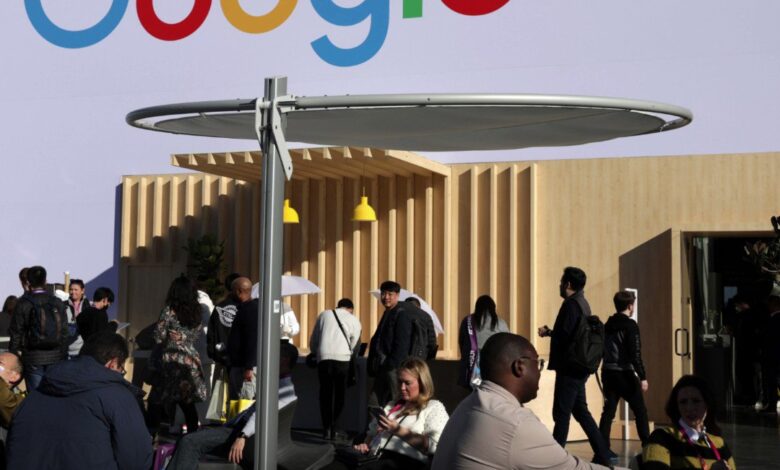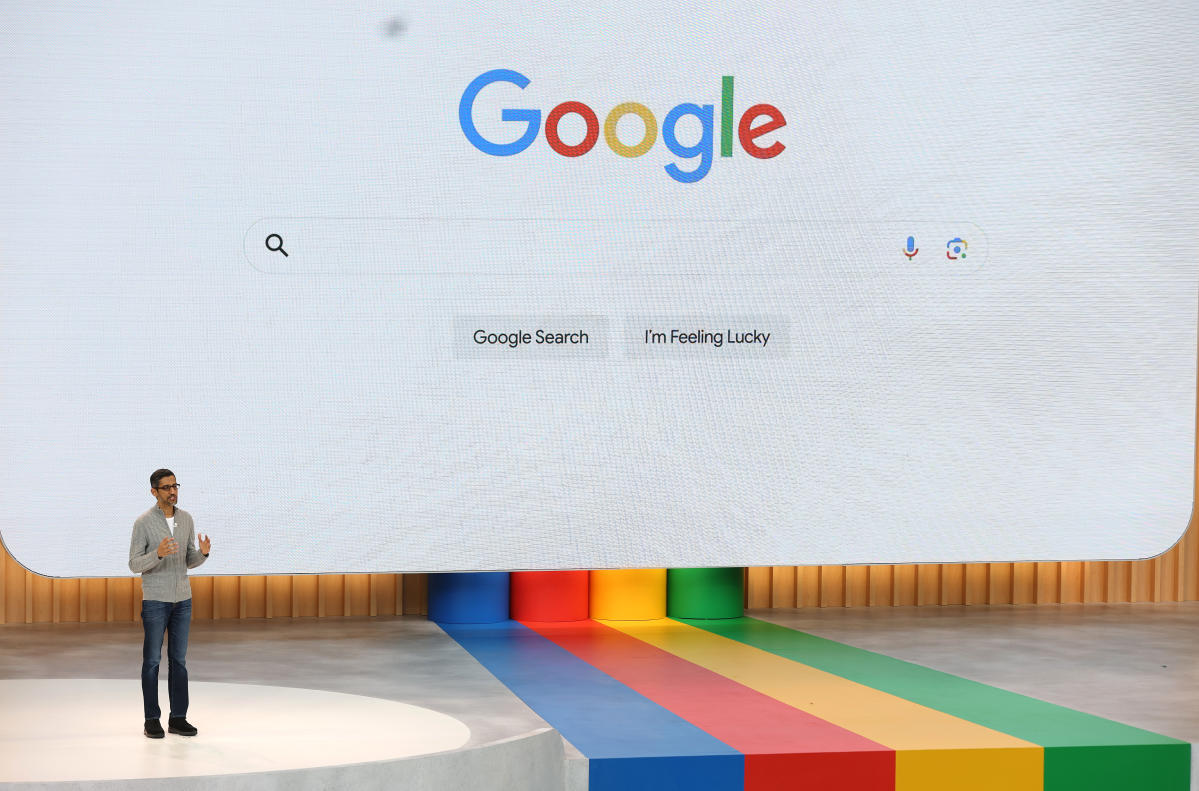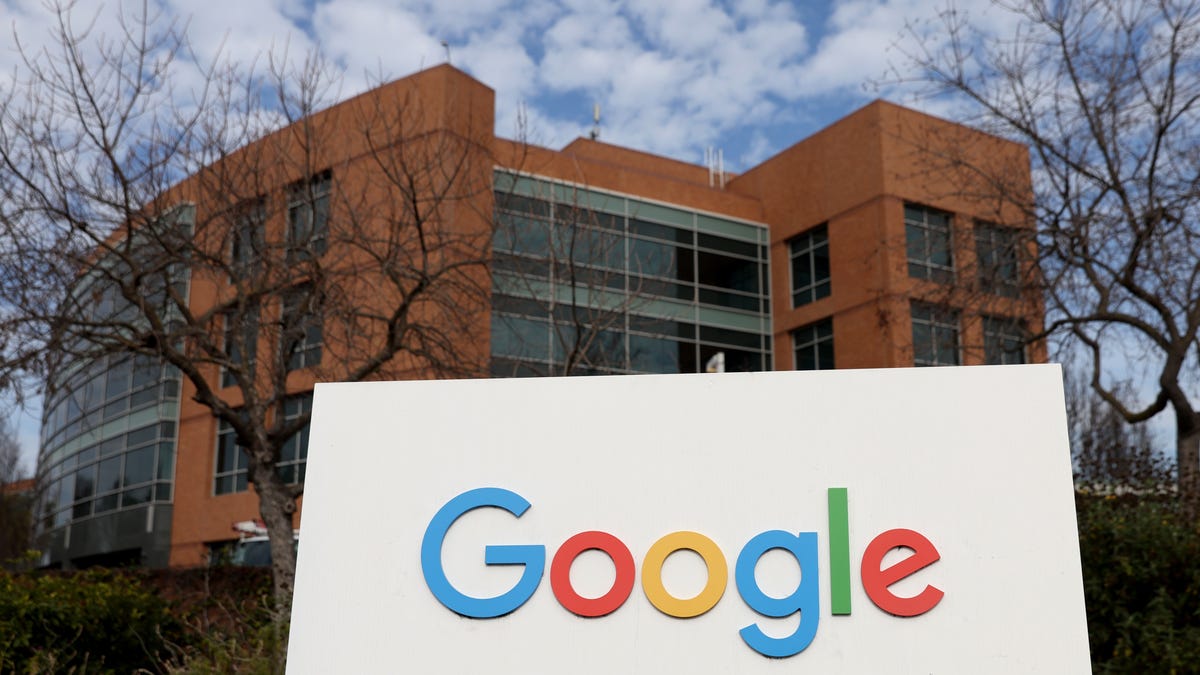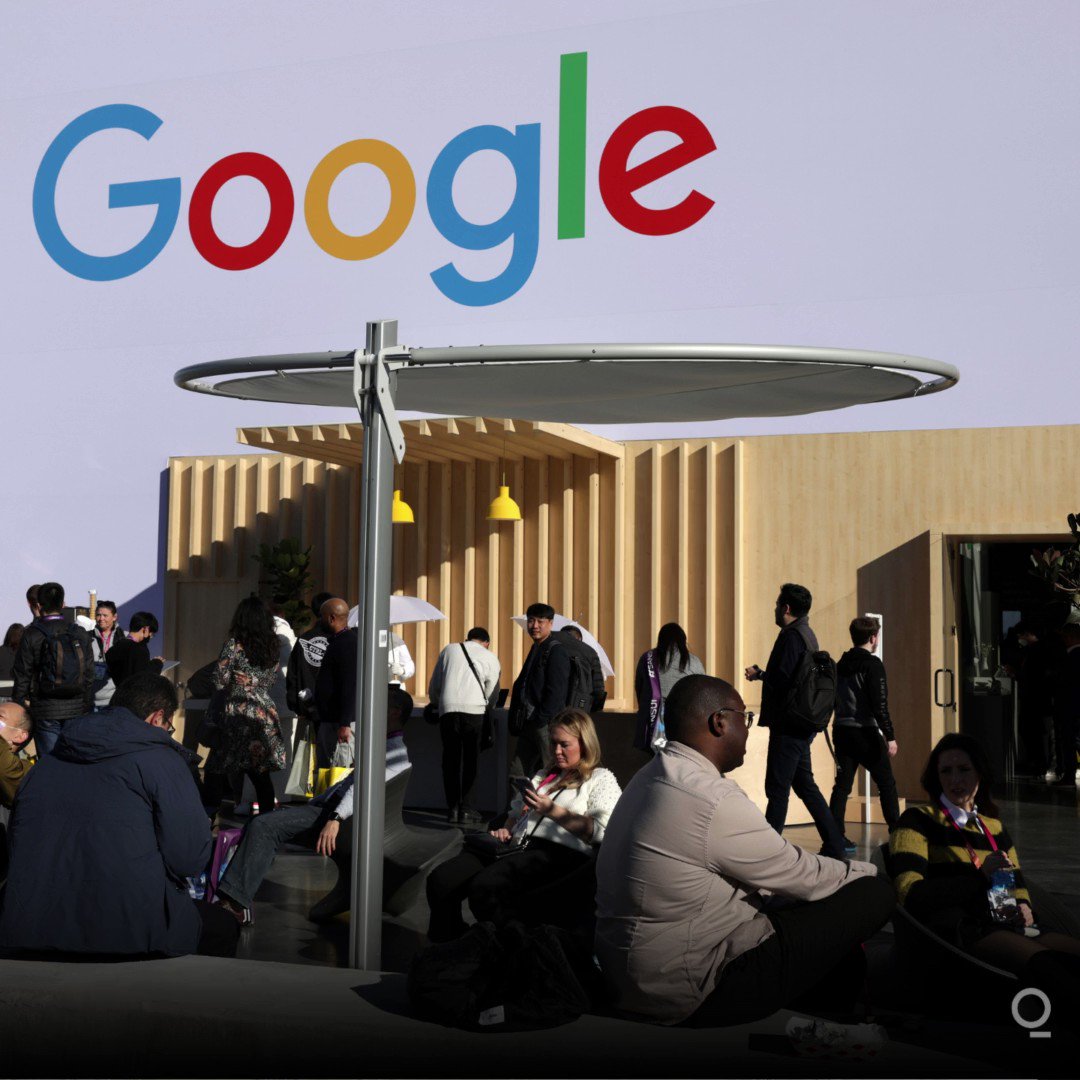
Google Loses Landmark Antitrust Case in Federal Court
Federal court rules against Google in landmark antitrust case, marking a significant turning point in the tech giant’s dominance. This ruling, stemming from accusations of anti-competitive practices, has sent shockwaves through the digital marketplace. The case, which has been in the spotlight for years, focuses on Google’s alleged monopoly in search and advertising, raising questions about the company’s control over online information and its impact on competition.
The court’s decision has far-reaching implications, not only for Google but also for the entire tech industry. It signals a potential shift in how antitrust laws are applied to digital giants, prompting discussions about the balance between innovation and fair competition.
This landmark ruling is likely to have a ripple effect on future cases and could lead to changes in how tech companies operate.
Case Background
The landmark antitrust case against Google, culminating in a federal court ruling against the tech giant, marks a significant turning point in the regulation of online platforms. The case, brought by the Department of Justice (DOJ), centered on allegations that Google has engaged in anti-competitive practices to maintain its dominance in the digital advertising market.
This case, which has been in the works for several years, has been scrutinized by legal experts and industry observers alike. It’s a culmination of a series of investigations and inquiries into Google’s business practices, which have raised concerns about the company’s potential to stifle competition and innovation.
History of the Case
The DOJ’s antitrust lawsuit against Google was filed in 2020, but the origins of the case can be traced back to several years prior.
- In 2011, the Federal Trade Commission (FTC) investigated Google’s acquisition of ITA Software, a company that provided flight search technology. While the FTC ultimately allowed the acquisition, it imposed conditions on Google to ensure it wouldn’t unfairly leverage its control over flight data.
- In 2012, the European Commission fined Google €2.42 billion for abusing its dominance in the online search market. The Commission found that Google favored its own comparison shopping service in search results, unfairly disadvantaging rivals.
- In 2017, the DOJ opened an antitrust investigation into Google’s digital advertising practices, focusing on its AdSense and AdX platforms, which connect publishers and advertisers. The investigation centered on concerns that Google was using its dominant market position to stifle competition and increase its own profits.
Court Ruling
The federal court’s ruling against Google in the landmark antitrust case marked a significant development in the ongoing debate surrounding the power and reach of tech giants. The court’s decision, based on a thorough examination of Google’s business practices and their impact on competition, highlighted the potential for unchecked dominance in the digital marketplace.
It’s a busy week for legal battles! Just as the federal court ruled against Google in a landmark antitrust case, a federal judge struck down California’s one-gun-a-month law, ruling that it violated the Second Amendment. This ruling, much like the Google case, highlights the complex legal landscape surrounding big tech and individual rights, and it’ll be interesting to see how both cases play out in the coming months.
Antitrust Laws Applied
The court applied several key antitrust laws in its ruling, focusing on Google’s alleged monopolistic practices in the online advertising market. The Sherman Antitrust Act, passed in 1890, prohibits contracts, combinations, or conspiracies that restrain trade or commerce. The Clayton Antitrust Act, enacted in 1914, prohibits mergers and acquisitions that would lessen competition or create a monopoly.
The court’s decision relied heavily on these laws, finding that Google’s actions violated their spirit and intent.
The federal court’s ruling against Google in the landmark antitrust case has sparked a wave of discussion about the tech giant’s power and influence. This ruling comes at a time when many are grappling with the impact of technology on society, and the need for stricter regulations to ensure fair competition.
It’s a reminder that the fight for a more equitable and just society extends beyond just tech giants, as seen in the recent analysis in Philadelphia teenagers want guns off the streets , where young people are demanding action to address gun violence.
The Google case highlights the importance of holding corporations accountable for their actions, and the need for ongoing dialogue about the impact of technology on our lives.
Arguments Presented, Federal court rules against google in landmark antitrust case
The plaintiffs, a coalition of state attorneys general, argued that Google had abused its dominant position in the digital advertising market by engaging in anti-competitive practices. They alleged that Google had used its control over search and advertising platforms to stifle competition, manipulate ad auctions, and unfairly advantage its own products and services.
Google, in its defense, maintained that its practices were legitimate business strategies aimed at providing users with the best possible experience. They argued that their dominance was a result of innovation and efficiency, not anti-competitive behavior.
Potential Implications

The landmark antitrust ruling against Google carries significant implications, potentially reshaping the digital landscape and impacting various stakeholders, including Google itself, the tech industry, and consumers.
Impact on Google’s Business Practices
The ruling’s impact on Google’s business practices is multifaceted. It could lead to significant changes in how Google operates its search engine, advertising platform, and other services. For instance, Google might be required to:
- Unbundle its services: This could involve separating its search engine from other services like Chrome, Android, and YouTube, potentially limiting Google’s ability to leverage data across its platforms to personalize search results and target advertising.
- Modify its advertising practices: The ruling could force Google to alter its advertising algorithms, potentially limiting its ability to prioritize its own products and services in search results, and creating a more level playing field for competitors.
- Increase transparency: Google may be compelled to provide greater transparency regarding its algorithms and data collection practices, allowing competitors and regulators to better understand its operations.
These changes could significantly impact Google’s revenue streams, forcing it to adapt its business model and potentially leading to a decline in its market share.
The recent federal court ruling against Google in a landmark antitrust case raises concerns about the potential for unchecked corporate power. This decision comes on the heels of a Trump judge’s new decision that would undo more than 50 years of voting rights law , highlighting a disturbing trend of eroding fundamental rights and protections.
It’s crucial to stay vigilant and advocate for a fair and equitable playing field for all, ensuring that these decisions don’t pave the way for a future dominated by monopolies and disenfranchisement.
Consequences for the Tech Industry
The ruling sets a precedent for antitrust enforcement in the tech industry, signaling a shift in regulatory approach. It could:
- Encourage greater antitrust scrutiny: The ruling could embolden regulators to investigate other tech giants like Amazon, Apple, and Facebook, potentially leading to similar antitrust actions against these companies.
- Promote competition: The ruling could foster a more competitive tech landscape, potentially creating opportunities for smaller companies to gain a foothold in the market and offering consumers more choices.
- Increase innovation: Increased competition could lead to greater innovation as companies strive to differentiate themselves and attract users.
The ruling’s impact on the tech industry is likely to be felt for years to come, as companies navigate the evolving regulatory landscape and adapt their business practices.
Implications for Consumers and Competition in the Digital Marketplace
The ruling’s implications for consumers are complex and potentially positive. It could:
- Increase consumer choice: By limiting Google’s dominance, the ruling could lead to a wider range of search engines and other digital services, giving consumers more options and potentially lowering prices.
- Enhance privacy: Increased scrutiny of Google’s data collection practices could lead to greater protection for consumer privacy.
- Promote innovation: A more competitive digital marketplace could drive innovation and lead to the development of new and improved products and services.
However, the ruling could also lead to unintended consequences, such as:
- Fragmentation of the digital landscape: The unbundling of Google’s services could create a fragmented digital experience, potentially making it more difficult for consumers to access information and services across different platforms.
- Reduced quality of services: The ruling could lead to a decline in the quality of services offered by Google, as it faces greater competition and potentially reduced resources.
Ultimately, the long-term impact of the ruling on consumers and the digital marketplace will depend on how Google, other tech giants, and regulators respond to the new regulatory landscape.
Arguments for and Against the Ruling

The landmark antitrust case against Google has sparked intense debate, with proponents and opponents of the ruling presenting compelling arguments. This section delves into the key arguments on both sides, examining the evidence and reasoning behind each perspective.
Arguments Supporting the Ruling
The ruling against Google has been praised by many for its potential to promote competition and innovation within the digital advertising market. Supporters argue that Google’s dominance in online advertising has stifled competition and harmed consumers.
- Reduced Competition:Google’s dominance in search and advertising has created a barrier to entry for competitors, making it difficult for new players to gain a foothold in the market. This lack of competition can lead to higher prices for advertisers and fewer choices for consumers.
- Anti-Competitive Practices:Critics argue that Google has engaged in anti-competitive practices, such as favoring its own services in search results and using its market power to disadvantage rivals. For example, Google has been accused of using its AdSense platform to steer traffic away from competing ad networks.
- Consumer Harm:Supporters of the ruling argue that Google’s dominance has led to reduced consumer choice and higher prices for online advertising. Consumers may face fewer options for online advertising and higher prices for goods and services as a result of Google’s control over the market.
Arguments Against the Ruling
Opponents of the ruling argue that it could stifle innovation and harm consumers by limiting Google’s ability to invest in new technologies and services. They argue that Google’s dominance is a result of its innovation and efficiency, and that breaking up the company could hinder its ability to compete with global rivals.
- Innovation and Efficiency:Opponents argue that Google’s size and market share are a result of its innovation and efficiency, not anti-competitive practices. Google’s investment in research and development has led to the creation of numerous innovative products and services that benefit consumers.
- Global Competition:Critics of the ruling point to the increasing competition from global technology giants such as Amazon, Microsoft, and Apple. They argue that breaking up Google could weaken its ability to compete with these rivals and harm the US tech industry.
- Consumer Benefits:Opponents argue that Google’s dominance has resulted in significant benefits for consumers, including free search services, access to a vast array of information, and innovative products and services. They argue that breaking up Google could lead to a decline in innovation and consumer choice.
Future Outlook: Federal Court Rules Against Google In Landmark Antitrust Case
The landmark antitrust ruling against Google is likely to have a significant and lasting impact on the tech industry and its relationship with regulators. The decision has opened up a Pandora’s box of legal and regulatory questions, with the potential for appeals, further legal action, and sweeping changes to the antitrust landscape.
Potential for Appeals and Further Legal Action
Google is expected to appeal the ruling, arguing that the court’s interpretation of antitrust law is flawed and that its business practices do not constitute illegal monopolization. The appeal process could take years and could ultimately result in a reversal of the lower court’s decision.
Even if Google loses its appeal, it may still pursue other legal avenues, such as seeking a settlement with the government or challenging the enforcement of the ruling.
Implications for Future Antitrust Cases Involving Tech Giants
This ruling sets a precedent for future antitrust cases involving tech giants. It signals a growing willingness of regulators to scrutinize the dominant market positions of tech companies and to take action to prevent them from abusing their power. The decision could lead to more antitrust investigations and lawsuits against other tech companies, such as Amazon, Apple, and Facebook, particularly those operating in online advertising and search.
Potential for Regulatory Changes
The ruling could also lead to significant regulatory changes. Regulators may introduce new rules and regulations specifically targeting the practices of tech giants, such as limiting their ability to collect and use data, restricting their control over online advertising, and promoting competition in digital markets.
These changes could have a profound impact on the business models of tech companies and the way they operate.
Final Summary

The federal court’s ruling against Google in this landmark antitrust case is a pivotal moment in the ongoing debate about tech giants’ power. It raises critical questions about the role of competition in the digital age and how antitrust laws should be adapted to address the unique challenges posed by these companies.
This case serves as a stark reminder of the importance of ensuring fair and competitive markets, and it will be interesting to see how Google responds and how this ruling shapes the future of the tech industry.






